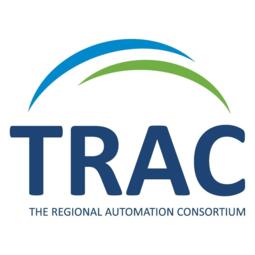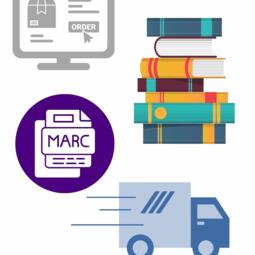The Human Mind
Explore the fascinating mysteries of the human mind and the latest neuroscience with these nonfiction titles.
Believing : the neuroscience of fantasies, fears, and convictions
McGuire, Michael T., 1929-, author
2013
The believing brain : from ghosts and gods to politics and conspiracies--how we construct beliefs and reinforce them as truths
Shermer, Michael
2011
The brain that changes itself : stories of personal triumph from the frontiers of brain science
Doidge, Norman, author
2007
A new science called neuroplasticity is overthrowing the old notion that the human brain is immutable. Psychoanalyst Doidge traveled the country to meet both the brilliant scientists championing neuroplasticity and the people whose lives they've transformed--people whose mental limitations or brain damage were seen as unalterable. We see a woman born with half a brain that rewired itself to work as a whole, blind people who learn to see, learning disorders cured, IQs raised, aging brains rejuvenated, stroke patients learning to speak, children with cerebral palsy learning to move with more grace, depression and anxiety disorders successfully treated, and lifelong character traits changed. Using these stories to probe mysteries of the body, emotion, love, sex, culture, and education, Dr. Doidge has written an inspiring book that will permanently alter the way we look at our brains, human nature, and human potential.--From publisher description.
Brand seduction : how neuroscience can help marketers build memorable brands
Weber, Daryl, author
2016
Conscious : a brief guide to the fundamental mystery of the mind
Harris, Annaka, author
2019
What is consciousness? How does it arise? And why does it exist? People take their experience of being in the world for granted. But the very existence of consciousness raises profound questions: Why would any collection of matter in the universe be conscious? How are people able to think about this? And why should they? In this wonderfully accessible book, Annaka Harris guides listeners through the evolving definitions, philosophies, and scientific findings that probe the limited understanding of consciousness. Where does it reside, and what gives rise to it? Could it be an illusion or a universal property of all matter? As listeners try to understand consciousness, they must grapple with how to define it and, in the age of artificial intelligence, who or what might possess it.
The consciousness instinct : unraveling the mystery of how the brain makes the mind
Gazzaniga, Michael S., author.
2018
Electric brain : how the new science of brainwaves reads minds, tells us how we learn, and helps us change for the better
Fields, R. Douglas, author
2020
The detection of brainwaves in the early twentieth century is one of the most important developments in the history of neuroscience, yet few people are talking about them. Neuroscientist and author R. Douglas Fields explores groundbreaking research that shows brainwaves can: reveal the type of brain you have--its strengths and weaknesses and your aptitude for learning different types of information; allow scientists to watch your brain learn, glean your intelligence, and even tell how adventurous you are; expose hidden dysfunctions; provide a simple path for treating psychological conditions; render your thoughts and transfer them to machines and back from machines into your brain; meld minds by telepathically transmitting information from one brain to another; enable individuals to rewire their own brains and improve cognitive performance.
How the mind works
Pinker, Steven, 1954- author
2009
Explains what the mind is, how it evolved, and how it allows us to see, think, feel, laugh, interact, enjoy the arts, and ponder the mysteries of life.
Incognito : the secret lives of the brain
Eagleman, David
2011
If the conscious mind--the part you consider to be you--is just the tip of the iceberg, what is the rest doing? This book will shine light on some of the hard-to-reach places in the brain, showing the ways in which we are not the ones driving the boat.
Into the gray zone : a neuroscientist explores the border between life and death
Owen, Adrian M., author
2017
Joy, guilt, anger, love : what neuroscience can-- and can't-- tell us about how we feel
Frazzetto, Giovanni, author
2014
Neurologic : the brain's hidden rationale behind our irrational behavior
Sternberg, Eliezer J. author
2016
The neuroscientist who lost her mind : my tale of madness and recovery
Lipska, Barbara K., author
2018
Neurotribes : the legacy of autism and the future of neurodiversity
Silberman, Steve, 1957- author
2015
The nocturnal brain : nightmares, neuroscience, and the secret world of sleep
Leschziner, Guy, author
2019
The other brain : from dementia to schizophrenia, how new discoveries about the brain are revolutionizing medicine and science
Fields, R. Douglas
2009
Unthinkable : an extraordinary journey through the world's strangest brains
Thomson, Helen, author 1913-2012
2018
Useful Delusions : The Power and Paradox of the Self-Deceiving Brain.
Vedantam, Shankar.
2021
Everyone agrees that lies and self-deception can do terrible harm. Host of Hidden Brain Shankar Vedantam argues that, paradoxically, deceiving ourselves and others can also play a vital role in human success and well-being. These lies explain why some people live longer than others, why some couples remain in love and others don't, why some nations and tribes hold together while others splinter. Filled with powerful personal stories and drawing on new insights in psychology, neuroscience, and philosophy, this book offers a fascinating tour of an upside-down world. Print run 50,000.







